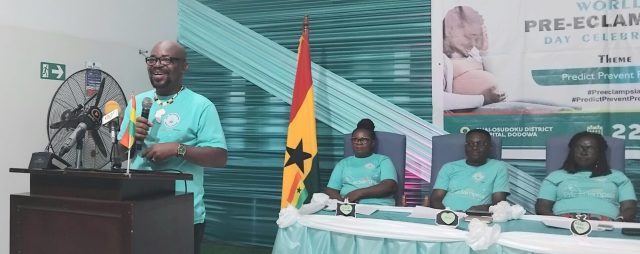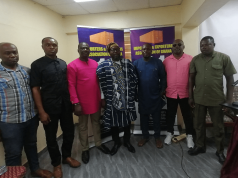Dr Kennedy Tettey Coffie Brightson, the Medical Superintendent of the Shai-Osudoku District Hospital, has advised pregnant women against abandoning medical assistance for prayer camps.
Dr Brightson said they had noticed that pastors had lots of influence on pregnant women and urged religious leaders to serve as ambassadors for the promotion of good health practices in their various communities.
He gave the advice at the launch of the pre-eclampsia day at the Shai-Osudoku District Hospital, saying religious leaders’ role in promoting health talks would eliminate myths and misconceptions regarding some health complications and energise people to immediately visit health facilities for treatment.
He said that there had been instances where pregnant women had stopped medical treatment due to some pastor’s advice, saying the situation was hindering the well-being of some pregnant women, leading to complications and sometimes death.
Dr Brightson cited an instance where a pastor visited the consulting room with the patient to undermine the work of the health practitioner, adding that such attitudes made the work of health providers difficult and could also decrease the chances of saving the patient’s life.
He said his outfit had initiated activities such as visiting clients at home and running satellite clinics, including at Torkpo, Agortor, Osuwem, and Asutuare, among others, to help identify the challenging conditions and amicably find solutions to them.
He said that a pregnancy school was initiated to intensify education in and outside the hospital, while human resources capacity was strengthened while the number of consulting rooms increased to promote maternal health care.
Dr Brightson explained that the pregnant schools operated on Tuesdays and Thursdays for pregnant women to be educated, while on Saturdays, their partners also visited the hospital for education.
Again, a new clinic had been opened for working mothers who could visit the hospitals as early as 0600 hours.
He urged Ghanaians to develop the habit of visiting health facilities with their issues and listening to the advice of their caretakers.
Source: GNA
















